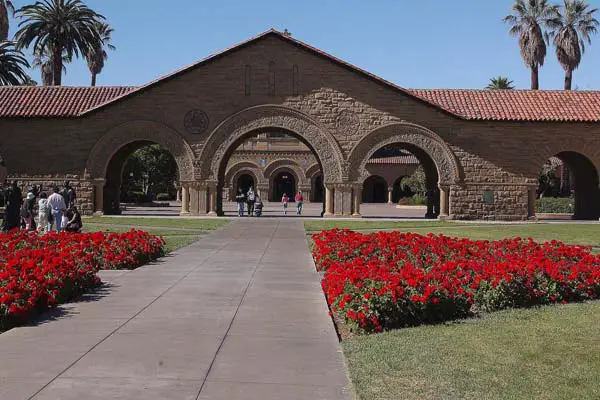CBSE vs IGCSE: Picking the Perfect Board for Your Child’s Journey
CBSE and IGCSE are two of India’s most popular education boards. CBSE is a national-level board in India, while IGCSE is an internationally recognized board offered by the University of Cambridge.
The CBSE curriculum aims to build a solid understanding of Mathematics, Science, and Social Studies. It covers languages and offers choices like Arts, Music, and Physical Education. CBSE conducts its own exams and issues certificates to students.
CBSE is known for its structured and well-defined syllabus, which is updated regularly to keep up with the changing needs of society.
On the other hand, IGCSE is a globally recognized curriculum that provides students with a comprehensive education that prepares them for higher education and employment opportunities worldwide.
The IGCSE curriculum is designed to be flexible and focuses on developing students’ analytical and critical thinking skills. It offers various subjects, including Mathematics, Science, Languages, Humanities, and Creative Arts.
The IGCSE board conducts examinations and awards certificates to students through the University of Cambridge International Examinations (CIE).
One of the critical differences between CBSE and IGCSE is the teaching methodology. CBSE follows a more traditional approach to teaching, while IGCSE focuses on inquiry-based learning.
In CBSE, students are expected to learn by rote memorization, while in IGCSE, students are encouraged to explore and discover knowledge independently.
Another contrast lies in the assessment methods. CBSE exams follow a standardized structure featuring multiple-choice and short-answer questions. IGCSE exams are more subjective, incorporating essay-style queries, practical examinations, and coursework.
Curriculum Comparison
The curriculum of CBSE and IGCSE boards differ significantly. CBSE offers a structured and skill-based curriculum primarily focusing on Science, Mathematics, Social Sciences, and Languages.
Created to offer a solid grounding in fundamental subjects, the CBSE curriculum is perfect for students pursuing technical and professional courses.
🌟 Hey Students! 🚀 Ready for the ultimate experience? Join us on Studentsinside.com's Facebook, YouTube, WhatsApp, and LinkedIn. Click now for tips, fun, and success vibes! 🌈✨ #StudentLife #JoinUs
On the other hand, IGCSE offers a more comprehensive and flexible curriculum that emphasizes the development of critical thinking and problem-solving skills.
In terms of subjects, CBSE offers a limited number of options compared to IGCSE. CBSE focuses mainly on Science, Mathematics, Social Sciences, and Languages, whereas IGCSE provides a broader range of subjects, including Humanities, Arts, and Business Studies.
Another significant difference between the boards is their approach to Science and Mathematics. CBSE emphasizes rote learning and memorization of formulas, whereas IGCSE focuses on conceptual understanding and practical application of scientific principles.
This approach prepares students for higher education and research in Science and Mathematics.
Furthermore, CBSE boards offer subjects in both English and Hindi, whereas IGCSE is primarily an English medium board. However, IGCSE does offer a few subjects in Hindi as well.
In terms of stream and combinations, CBSE lets students choose subject combinations within their stream only. On the other hand, IGCSE provides a variety of subjects and combinations, and stream is no bar.
Assessment and Examinations
Both CBSE and IGCSE have different assessment and examination patterns. CBSE follows a continuous and comprehensive evaluation (CCE) system, which assesses students throughout the academic year.
The CCE system evaluates students based on their performance in both formative and summative assessments. Formative assessments include classwork, homework, projects, and presentations, while summative assessments include term-end exams.
IGCSE uses two types of tests. The first, called formative assessments, happens all year and includes quizzes, classwork, homework, projects, and presentations. The second type, summative assessments, are written exams held at the end of the school year.
CBSE has a standardized grading system based on a nine-point scale. The grades range from A1 to E2, with A1 being the highest and E2 being the lowest. The grading system is based on the student’s performance in both formative and summative assessments.
IGCSE uses a grading system from A* to G, with A* as the best and G as the lowest. Your grade depends on how well you do in the written exams at the end of the school year.
In terms of difficulty, the IGCSE exams are considered to be more challenging than the CBSE exams. The IGCSE curriculum prepares students for A-level exams, while the CBSE curriculum prepares students for the All India Senior School Certificate Examination (AISSCE) and All India Secondary School Examination (AISSE).
Recognition and Acceptance
One of the most important factors to consider when choosing between CBSE and IGCSE is the recognition and acceptance of the board. This section will discuss the recognition of CBSE and IGCSE by universities, Indian and international universities, and other entities.
Most universities in India recognize CBSE and are widely accepted for undergraduate course admission. It is also recognized by many international universities, especially in countries such as the United States and Canada.
However, it is essential to note that the recognition of CBSE may vary depending on the university and the course.
IGCSE, on the other hand, is an internationally recognized board and is accepted by universities worldwide. It is particularly popular in the United Kingdom, Australia, and Canada.
Moreover, IGCSE is recognized by the International Baccalaureate (IB) and is considered a good preparation for the IB Diploma Programme.
CBSE is India’s preferred board for admission to National Institutes of Technology (NITs). However, IGCSE students can still get admission to NITs. IGCSE students can still apply for admission to NITs but may need to take additional exams to demonstrate their proficiency in certain subjects.
Regarding recognition by other entities, both CBSE and IGCSE are recognized by the Association of Indian Universities (AIU). This means that students from CBSE and IGCSE degrees are equivalent to those from other recognized boards.
Pros and Cons of CBSE and IGCSE
When choosing between CBSE and IGCSE, several factors need to be considered. Each board has its own set of advantages and disadvantages.
CBSE
Pros
- CBSE is a widely recognized board in India, making it easier for students to get admission to Indian universities.
- The syllabus of CBSE is designed to be more practical and application-based, which helps students to develop critical thinking and problem-solving skills.
- CBSE offers a wide range of subjects and a well-structured curriculum that systematically covers all the necessary topics.
- CBSE conducts several national-level entrance exams, such as JEE Main and NEET, which most universities in India recognize.
Cons
- CBSE can be demanding for students who are not used to the rigorous academic standards of the board.
- CBSE can be expensive, as the cost of books and study materials can be high.
- CBSE can be complex, as the board has several rules and regulations that must be followed.
IGCSE
Pros
- IGCSE is an internationally recognized board, making it easier for students to get admission to universities abroad.
- The syllabus of IGCSE is designed to be more comprehensive and holistic, which helps students develop a broader perspective on different subjects.
- The IGCSE program provides students with diverse subjects and a flexible curriculum, enabling them to pursue their interests.
- IGCSE focuses on developing practical skills and encourages students to think creatively and independently.
Cons
- IGCSE can be demanding for students who are not used to the rigorous academic standards of the board.
- IGCSE can be expensive, as the cost of books and study materials can be high.
- IGCSE can be complex, as the board has several rules and regulations that must be followed.
Teaching and Learning Style
The teaching and learning style is one of the most significant differences between CBSE and IGCSE. CBSE follows a more traditional teaching style that emphasizes rote learning and memorization.
On the other hand, IGCSE focuses on developing critical thinking, problem-solving skills, and creativity through a more student-centered approach.
CBSE’s teaching style is more structured, with a set curriculum that students must follow. The emphasis is on completing the syllabus and preparing students for exams.
The learning style focuses on understanding and recalling information rather than analyzing and applying it. This approach may work well for students who prefer a structured learning environment and have good memory retention skills.
Unlike other approaches, IGCSE lets students be more flexible and involved in learning. It covers different subjects, helping students build their thinking and problem-solving skills.
The learning style focuses more on understanding and applying concepts than memorizing information. This approach may work well for students interested in exploring their interests and strengths and prefer a more creative and interactive learning environment.
Preparation for Higher Education
Both CBSE and IGCSE boards prepare students for higher education, but there are some differences in the approach and focus of each board.
CBSE board has a more traditional approach towards education, focusing on memorization and rote learning. On the other hand, the IGCSE board has a more practical approach to education, focusing on critical thinking and problem-solving skills.
Both boards prepare students for entrance exams such as JEE, NEET, SAT, ACT, and GRE. However, students from the CBSE board may find it easier to crack entrance exams for engineering and medical courses. In contrast, students from the IGCSE board may have an advantage in exams that test critical thinking and problem-solving skills.
The IGCSE board may be a better option for students pursuing higher education abroad as it is recognized internationally. The IB Diploma program is also famous for students who plan to study abroad.
The CBSE board teaches many subjects like math, science, social science, and languages. The IGCSE board also covers a lot of subjects but leans more towards creative and technical ones.
Additional Resources and Support
Both CBSE and IGCSE offer additional resources and support to their students to help them excel academically and personally.
Textbooks and Reference Books
CBSE provides its prescribed syllabus nationwide, while IGCSE allows students to choose the most recommended textbooks and reference books.
This means that IGCSE students have access to a broader range of resources, which can be particularly useful for those interested in further education abroad.
NCERT and Global Research
CBSE students can utilize the resources provided by the National Council of Educational Research and Training (NCERT), a government organization that creates and publishes textbooks and educational materials.
These NCERT books are highly regarded for their quality and are frequently referenced by students from various educational boards.
In contrast, the IGCSE system is globally recognized and provides students with access to international research and resources. This feature is especially advantageous for students who aspire to pursue higher education abroad.
Extracurricular Activities
CBSE and IGCSE schools provide students with extracurricular activities, fostering crucial life skills like leadership, teamwork, and time management. Yet, these activities’ specific types and ranges can differ between the two educational boards.
Skill Development
IGCSE strongly emphasizes skill development, reflected in its curriculum and assessment methods.
The board offers practical, analytical, and examination modes of assessment, which can help students develop critical thinking, problem-solving, and communication skills.
On the other hand, CBSE primarily relies on examinations for assessment, which may be less effective in developing these skills.
Research
CBSE and IGCSE want students to research to understand subjects better and prepare for higher studies. But how they do it is a bit different. IGCSE likes students to explore independently, while CBSE prefers projects.







